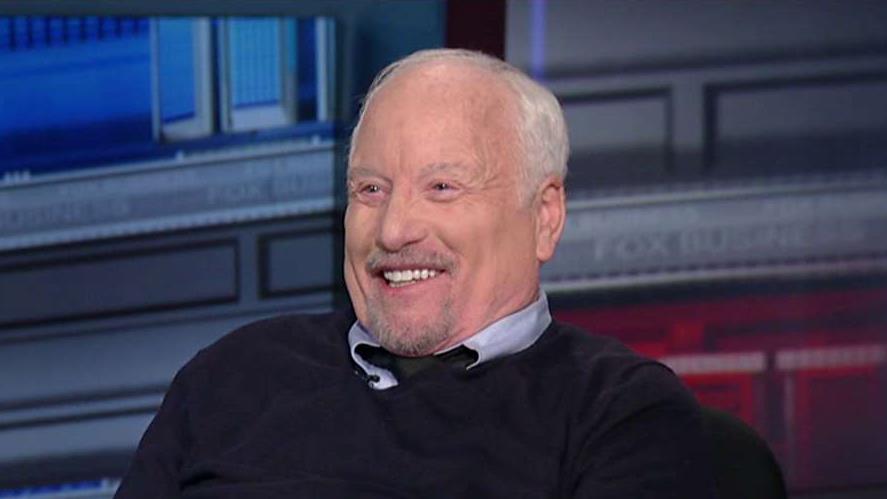Bernie Madoff at last is a good investment, 10 years later
This Tuesday marks the tenth anniversary of the arrest of Bernard Madoff. Madoff’s crime was, without doubt, the biggest Ponzi scheme of all time and a contender for the most notorious financial fraud ever. Over the course of nearly forty years, until December 11, 2008, Madoff fooled tens of thousands of victims, stealing tens of billions of dollars. A decade later, Madoff is serving a sentence that will ensure that he dies in prison, and fourteen of his associates were convicted by guilty plea or at trial. Fittingly for participants in the longest-running fraud, five of Madoff’s trusted lieutenants were convicted in the longest-running criminal securities fraud trial ever in New York City, the center of the universe for such things.
But in a case with so many “biggests” and “mosts,” one of the lasting legacies of Madoff’s crime – though, for sure, not the only one – is the extraordinary result achieved by one of history’s biggest and most effective asset recovery efforts. A court appointed trustee has recovered more than $13 billion for victims, mostly through an aggressive litigation campaign that may yield billions more if he has his way. Private lawsuits have resulted in the recovery of hundreds of millions of dollars more. And federal prosecutors have recovered another $4 billion that is being distributed to victims of Madoff’s crime that are (for complicated legal reasons) not able to benefit from the Trustee’s work. I was and am extraordinarily proud to have been one of the prosecutors responsible for that amazing recovery for victims.
Prosecutors collected millions from Madoff himself and the other criminal defendants, but the overwhelming majority of the money came as a result of dedicated prosecutors and law enforcement agents pursuing creative legal and investigative strategies – the kinds of strategies that require a serious investment of time, money, and human capital. Billions were recovered through civil asset forfeiture, a sometimes-controversial legal tool that is absolutely indispensable in complex fraud and large-scale asset recovery efforts. Another billion-plus came from holding Madoff’s primary bank responsible for failing to detect the fraud being perpetrated under its nose, in one of the earliest cases evidencing the Department of Justice’s commitment to enforcing the anti-money laundering laws against financial institutions that facilitate financial crimes and other gatekeepers, like accountants and lawyers, that should be helping to stop crime rather than facilitating it. Retired SEC Chairman Richard Breeden, acting under the Department of Justice’s supervision, is in the process of distributing those forfeited funds as part of the largest and most ambitious distribution of forfeited assets ever.
Results like these don’t come easy. The Trustee pursuing civil litigation has famously billed more than $1 billion for his services. (He’s being paid from a special industry-funded source, not out of the money recovered for victims). The government, while a good deal more cost-effective, still invested millions of dollars and tens of thousands of man- and woman-hours as prosecutors, law enforcement agents from the FBI, IRS, Department of Labor, and other federal agencies, along with the enforcement staff of the SEC, worked to unravel the fraud. Amazingly, despite this hefty price tag, the Madoff asset recovery initiative has provided a remarkable return on investment.
While no crime victim can go back in time and undo the harm they suffered, financial crimes are unique insofar as victims can actually recoup their losses. From a law enforcement perspective, the recovery of assets for victims is a critical priority, right alongside the need to punish and make an example out of wrong-doers. Properly done, asset recovery also takes the profit out of crime and proves the old adage that “crime doesn’t pay.” The unprecedented success of the Madoff asset recovery initiative shows that, while complex financial crimes are expensive and time-consuming to unravel, the effort is worth the investment.
Matthew L. Schwartz is a partner at Boies Schiller Flexner LLP in New York City, where he focuses on investigations, white collar criminal defense, and asset forfeiture and recovery. From 2005 to 2015, he was an Assistant United States Attorney for the Southern District of New York where, among other things, he led the investigation of Bernard L. Madoff Investment Securities and had primary responsibility for all criminal and civil asset forfeiture matters related to the Madoff case.




















